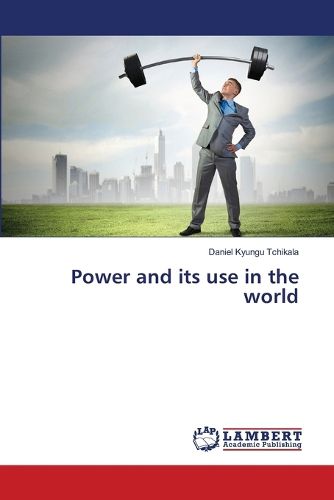Readings Newsletter
Become a Readings Member to make your shopping experience even easier.
Sign in or sign up for free!
You’re not far away from qualifying for FREE standard shipping within Australia
You’ve qualified for FREE standard shipping within Australia
The cart is loading…






This title is printed to order. This book may have been self-published. If so, we cannot guarantee the quality of the content. In the main most books will have gone through the editing process however some may not. We therefore suggest that you be aware of this before ordering this book. If in doubt check either the author or publisher’s details as we are unable to accept any returns unless they are faulty. Please contact us if you have any questions.
Power can be a tool to help people or a weapon to harm them. From the dawn of time, people have received, held, and bestowed power. Our earliest written texts from Mesopotamia show us that someone is in charge and others are expected to follow. All who follow or do not follow leaders experience consequences; benefits for those who do and undesirable effects for those who do not. Our first known title for a king from ancient Sumer in Mesopotamia is LU.GAL meaning "Big Man." What does that tell us? Size, actual or perceived, can impact power. But power can have many other variables: Power presents its holder with both opportunity and responsibility. Power is a stewardship. In ancient Hebrew, the title for a steward meant "one who is over the house." This title describes a managing and distribution of resources. But it takes wisdom to mitigate power. Some argue that money can bring power. Money is a standard of value, a means of exchange, and a way of accumulating wealth. Some people will share their money and others will fixate on getting more. Similarly, knowledge can bring power. Those who understand this or that hold a form of control over those who do not.
$9.00 standard shipping within Australia
FREE standard shipping within Australia for orders over $100.00
Express & International shipping calculated at checkout
This title is printed to order. This book may have been self-published. If so, we cannot guarantee the quality of the content. In the main most books will have gone through the editing process however some may not. We therefore suggest that you be aware of this before ordering this book. If in doubt check either the author or publisher’s details as we are unable to accept any returns unless they are faulty. Please contact us if you have any questions.
Power can be a tool to help people or a weapon to harm them. From the dawn of time, people have received, held, and bestowed power. Our earliest written texts from Mesopotamia show us that someone is in charge and others are expected to follow. All who follow or do not follow leaders experience consequences; benefits for those who do and undesirable effects for those who do not. Our first known title for a king from ancient Sumer in Mesopotamia is LU.GAL meaning "Big Man." What does that tell us? Size, actual or perceived, can impact power. But power can have many other variables: Power presents its holder with both opportunity and responsibility. Power is a stewardship. In ancient Hebrew, the title for a steward meant "one who is over the house." This title describes a managing and distribution of resources. But it takes wisdom to mitigate power. Some argue that money can bring power. Money is a standard of value, a means of exchange, and a way of accumulating wealth. Some people will share their money and others will fixate on getting more. Similarly, knowledge can bring power. Those who understand this or that hold a form of control over those who do not.